![Polyorchard: Red October [CASSETTE w/DOWNLOAD] (Out and Gone Music) Polyorchard: Red October [CASSETTE w/DOWNLOAD] (Out and Gone Music)](https://www.teuthida.com/productImages/misc4/25326.jpg)
Polyorchard founder and double bassist David Menestres leads the quartet of Jeb Bishop on trombone, Shawn Galvin on percussion, and Laurent Estoppey on saxophone, using skills drawn from both improvisation and compositional music to present six free dialogs showing intent listening amongst the four as they create complex, interweaving, sophisticated statements; impressive!
In Stock
Quantity in Basket: None
Log In to use our Wish List
Shipping Weight: 5.00 units
EU & UK Customers:
Discogs.com can handle your VAT payments
So please order through Discogs
Sample The Album:
Jeb Bishop-trombone
Laurent Estoppey-saxophone
Shawn Galvin-percussion
David Menestres-double bass
Click an artist name above to see in-stock items for that artist.
Label: Out and Gone Music
Catalog ID: OG03
Squidco Product Code: 25326
Format: CASSETTE
Condition: New
Released: 2017
Country: USA
Packaging: Cassette
Recorded by David MenestresMastering by Alex Inglizian at ESSRecorded October 6, 2014live at Neptunes Parlour, Raleigh, NC
Get additional information at Dusted
Artist Biographies
• Show Bio for Jeb Bishop "Jeb Bishop was born in Raleigh, North Carolina during the Cuban missile crisis. He began playing the trombone at the age of 10, under the tutelage of Cora Grasser. Other influential teachers during junior high and high school included Jeanne Nelson, Eric Carlson, Richard Fecteau, Greg Cox, and James Cozart. He majored in classical trombone performance at Northwestern University from 1980-82, studying with Frank Crisafulli. Deciding he did not want to pursue a career as an orchestral musician, he returned to Raleigh in 1982 and took up engineering studies at NC State University. Raleigh's developing underground rock scene attracted him, and from 1982-84 he played bass guitar in rock bands in the Raleigh area. At the same time, he developed an interest in philosophy, eventually majoring in the subject, and spent 1984-85 studying philosophy at the Higher Institute of Philosophy of the Catholic University of Louvain, Belgium. Returing to Raleigh in 1985, he spent the next few years working at menial jobs and playing guitar, bass, cheap keyboards, drums, etc., in rock bands including and/or, the Angels of Epistemology, Egg, and Metal Pitcher. In 1989 he left Raleigh to pursue graduate studies in philosophy, first at the University of Arizona, then at Loyola University of Chicago (where he was awarded the Crown Fellowship in the Humanities). During 1991-92 he returned to Europe, spending the summer of 1991 studying German at the Goethe-Institut Iserlohn (now closed), and then pursuing independent studies in philosophy at the French-language division of the University of Louvain. Returning to Chicago in 1992, he completed his M.A. at Loyola in 1993. By this time he had already begun to make connections with improvising musicians in Chicago, having joined the Flying Luttenbachers as bassist (later adding trombone) in late 1992, and playing guitar occasionally in a quartet with Weasel Walter, Ken Vandermark, and Kevin Drumm. Other bands during this period included the Unheard Music Quartet (with Vandermark, Mike Hagedorn on trombone, and Otto Huber on drums) and the Rev Trio (with Walter and saxophonist Joe Vajarsky). Bishop played electric bass in both these bands. In late 1995, Bishop joined the Vandermark 5 as one of its founding members, and remained with the band through the end of 2004. During this period he also became associated with many other groups, including the Peter Brötzmann Chicago Tentet, School Days, Ken Vandermark's Territory Band, and his own Jeb Bishop Trio, and became a very frequent participant in ad hoc and free-improvised concerts in Chicago. Bishop performed in the inaugural concerts of two of the longest-running free-music concert series in Chicago: the Myopic Books weekly concerts (originally at Czar Bar; with Rev Trio) and the Empty Bottle Wednesday night concert series (with a quartet of Terri Kapsalis, Kevin Drumm, and Jim O'Rourke). He curated the monthly Chicago Improvisers Group concerts at the Green Mill from 1999-2002, and co-curated the weekly Eight Million Heroes concert series at Sylvie's in 2005-6. Bishop has made dozens of recordings with many different groups, has toured North America and Europe many times, and maintains a busy performing schedule." ^ Hide Bio for Jeb Bishop • Show Bio for Laurent Estoppey After studying saxophone at the "Conservatory of Lausanne, Switzerland, where he received in 1994, a concert license (master of arts soloist) Swiss saxophonist established in Greensboro in 2010, Laurent Estoppey, devoted himself mostly to contemporary music, but performs and teaches classic saxophone repertoire and transcriptions of baroque music. Numerous collaborations with composers have led him to create at least one hundred works. Now his musical activity is divided between written music and improvisation, and it occurs throughout Switzerland, many European countries, but also in Canada, USA, Argentina, Guatemala and South Africa. He works with the following orchestras: Orchestre de la Suisse Romande Orchestra (from 2008 to the present, conducted by Marek Janowski, Kazuki Yamada...), Lausanne Chamber Orchestra (1998 to the present (Christian Zacharias...) Basel Symphony, UBS Verbier Festival Orchestra (1999 James Levine) Timisoara, Orchestra of the State of Lithuania, Lausanne Sinfonietta, NEC - Chaux-de- Fonds-Contrechamps Geneva, Staatskapelle Weimar (2010, Heinz Holliger) Estoppey has founded and developed several chamber music groups including: DILEMME (saxophone / piano with Myriam Migani), ST15 (saxophone / piano with Virginie Falquet) DEGRE21 (saxophone / guitar with Antonio Albanese), 1+1 (duo- concept Anne Gillot, recorders), compagnie CH.AU (set of nine musicians) and the 4TENORS (saxophone quartet with Vincent Daoud, Rico Gubler and Lars Mlekusch). A collaboration with saxophonist Dr.Steve Stusek (professor at UNCG) as well as the foundation of COLLAPSS (Collective for Happy Sounds) in Greensboro are his main activities in the United States. Additionally he is regularly invited to play with the saxophone quartet Basel ARTE Quartet and is a member of baBel ensemBle. His improvisational collaborations involve meetings and concerts with musicians from all backgrounds. Many groups he has worked with are still alive today, including: HipNoiz51 (DJ, drums, saxophone, clarinet, bass and electronics) BETTY'S QUARTET (two saxophones, two voices Antoine Auberson, Anne-Sylvie Casagrande and Edmée Fleury), YET TRIO (Lingling Yu, pipa and Dragos Tara, doublebass), and Zkrabuj et chou et pâté (saxophone / percussion with LucMüller) Estoppey as also worked alongside many independant musicians such as Jacques Demierre, Pierre Favre, Pierre Audétat, Malcolm Braff, Urs Leimgruber, Fritz Hauser and Nick Didkovsky. He is a guest musician of the Russian theatrical troupe Akhe with whom the show "Wet Wedding" was presented in Geneva, Nice, London, Stockholm, and Mexico. His discography includes sixteen recordings His interest in all contemporary arts has led him to collaborate with many artists in interdisciplinary projects including, among others, projects with Georges Haldas (literature), Olivier Saudan (painting and video), Francis Baudevin Stephan Perrinjaquet, Tatiana Rihs, Claudia Comte, Christopher Cassidy, Samantha DiRosa (visual arts) Heidi Bunting, Christine Cruchon, Brianna Taylor (dance), Gil Pidoux (literature and theater). As an educator, Estoppey used to teach saxophone from beginners to master students for around twenty years in many music schools in Switzerland. He is regularly invited to lead improvisation workshops for musicians of all levels and all instruments, as well as saxophone, improvisation and contemporary music masterclasses. He has a real passion to share his love for art and music with children as well as teenagers and adults. As a composer, Estoppey writes music for concerts, but also sound installation and video art. His piece NFM for saxophone ensemble was recently performed by UNCG saxophone studio and UNCSAx Ensemble."" ^ Hide Bio for Laurent Estoppey • Show Bio for Shawn Galvin "Shawn M. Galvin is the Curator of New Music Raleigh (NMR), a collective of dynamic musicians dedicated to presenting outstanding performances of music by living composers. He is also currently serving a one-year contract (2017-18) as Percussionist and Timpanist with the Pittsburgh Symphony Orchestra. Shawn is a regular member of the experimental ensemble Polyorchard, and has recently conducted productions for the Arizona Opera, North Carolina Opera, and Duke Performances. Prior to his current positions, Shawn served as Principal Timpanist of the United States Navy Band, Washington, DC, and as a member of Tempus Fugit Percussion Ensemble. He has also performed with the North Carolina Symphony, the Chautauqua Symphony Orchestra, the Colorado Music Festival Orchestra, and the Washington Bach Consort. Originally from Pittsburgh, Pennsylvania, Shawn began studying percussion with his father at a young age. He received his Bachelor of Music degree in percussion performance from Duquesne University where he studied with Stanley Leonard, Andrew Reamer, and Gerald Unger. Shawn received a Master of Science in Arts Administration from Drexel University. Shawn currently lives in Raleigh, NC, with his wife Karen, who serves as Assistant Concertmaster of the North Carolina Symphony. He enjoys reading, biking, skiing, coffee, and studying music." ^ Hide Bio for Shawn Galvin • Show Bio for David Menestres "David Menestres is a bassist, composer, and writer currently living in the Piedmont region of North Carolina. David is the founder/leader of the Polyorchard ensemble and is the host and producer of Tone Science, a weekly two-hour radio show on taintradio.org since 2010." ^ Hide Bio for David Menestres
7/9/2025
Have a better biography or biography source? Please Contact Us so that we can update this biography.
7/9/2025
Have a better biography or biography source? Please Contact Us so that we can update this biography.
7/9/2025
Have a better biography or biography source? Please Contact Us so that we can update this biography.
7/9/2025
Have a better biography or biography source? Please Contact Us so that we can update this biography.
Track Listing:
SIDE A
1. I Would 08:30
2. Like 11:01
3. To 11:04
SIDE B
1. Have 07:26
2. Seen 08:11
3. Montana 10:12
Cassettes
Improvised Music
Jazz
Free Improvisation
Quartet Recordings
Staff Picks & Recommended Items
Physical Releases that include Download Codes
Cassettes
Improvised Music
Jazz
Free Improvisation
Quartet Recordings
Staff Picks & Recommended Items
Physical Releases that include Download Codes
Jazz & Improvisation Based on Compositions
Search for other titles on the label:
Out and Gone Music.


![Polyorchard: Red October [CASSETTE w/DOWNLOAD] (Out and Gone Music) Polyorchard: Red October [CASSETTE w/DOWNLOAD] (Out and Gone Music)](https://www.teuthida.com/productImages/full/25326.Full.jpg)
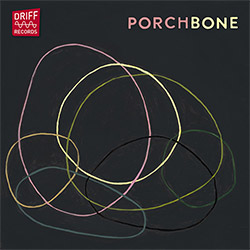
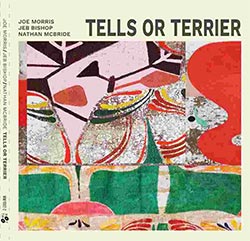

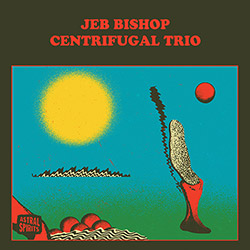
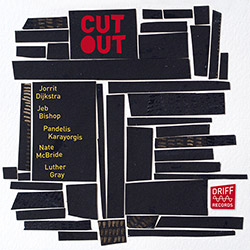
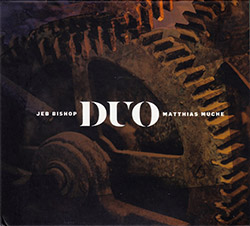

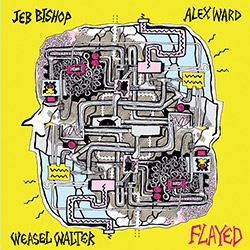
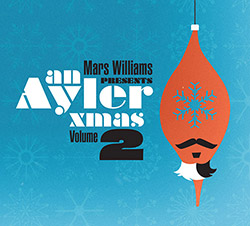

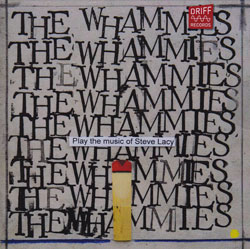
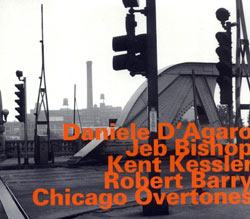



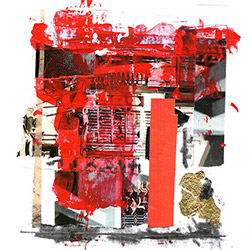

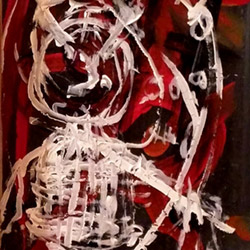

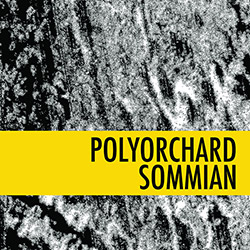










![BlueRing Improvisers: Materia [2 CDs]](https://www.teuthida.com/productImages/misc4/36513.jpg)








![Wheelhouse (Rempis / Adasiewicz / McBride): House And Home [VINYL]](https://www.teuthida.com/productImages/misc4/36462.jpg)
![+DOG+: The Light Of Our Lives [2 CDs]](https://www.teuthida.com/productImages/misc4/36009.jpg)


![Parker, Evan / Jean-Marc Foussat: Insolence [VINYL]](https://www.teuthida.com/productImages/misc4/36398.jpg)










![Deupree, Jerome / Sylvie Courvoisier / Lester St. Louis / Joe Morris: Canyon [2 CDs]](https://www.teuthida.com/productImages/misc4/36404.jpg)



![Eventless Plot | Haarvol: The Subliminal Paths [CASSETTE + DOWNLOAD]](https://www.teuthida.com/productImages/misc4/36232.jpg)










![Eventless Plot | Francesco Covarino: Methexis [CASSETTE + DOWNLOAD]](https://www.teuthida.com/productImages/misc4/36231.jpg)



![Das B (Mazen Kerbaj / Mike Majkowski / Magda Mayas / Tony Buck): Love [VINYL]](https://www.teuthida.com/productImages/misc4/36329.jpg)


![Eternities: Rides Again [CASSETTE]](https://www.teuthida.com/productImages/misc4/36247.jpg)
![Lopez, Francisco: Untitled (2021-2022) [2 CDs]](https://www.teuthida.com/productImages/misc4/36438.jpg)






![Money : Money 2 [2 CDs]](https://www.teuthida.com/productImages/misc4/35894.jpg)




![Klinga, Erik: Elusive Shimmer [VINYL]](https://www.teuthida.com/productImages/misc4/36258.jpg)
![CHANGES TO blind (Phil Zampino): Volume 9 - I Wave on a Fine Vile Mist [CD + DOWNLOAD]](https://www.teuthida.com/productImages/misc4/36061.jpg)

![Wallmart / Rubbish: Asset Protection [split CD]](https://www.teuthida.com/productImages/misc4/35900.jpg)


![+Dog+: The Family Music Book Vol. 5 [2 CDs]](https://www.teuthida.com/productImages/misc4/35897.jpg)
![Kuvveti, Deli : Kuslar Soyledi [CASSETTE w/ DOWNLOAD]](https://www.teuthida.com/productImages/misc4/36107.jpg)

![Brown, Dan / Dan Reynolds: Live At The Grange Hall [unauthorized][CASSETTE]](https://www.teuthida.com/productImages/misc4/36245.jpg)








![Palestine, Charlemagne / Seppe Gebruers: Beyondddddd The Notessssss [VINYL]](https://www.teuthida.com/productImages/misc4/36206.jpg)
![Palestine, Charlemagne / Seppe Gebruers: Beyondddddd The Notessssss [NEON GREEN VINYL]](https://www.teuthida.com/productImages/misc4/36207.jpg)

![Laubrock, Ingrid: Purposing The Air [2 CDs]](https://www.teuthida.com/productImages/misc4/35639.jpg)

![Yoko, Ono / The Great Learning Orchestra: Selected Recordings From Grapefruit [2 CDs]](https://www.teuthida.com/productImages/misc4/35841.jpg)









![Zorn, John / JACK Quartet: The Complete String Quartets [2 CDs]](https://www.teuthida.com/productImages/misc4/35609.jpg)

![Lonsdale, Eden: Dawnings [2 CDs]](https://www.teuthida.com/productImages/misc4/35480.jpg)



![Sorry For Laughing (G. Whitlow / M. Bates / Dave-Id / E. Ka-Spel): Rain Flowers [2 CDS]](https://www.teuthida.com/productImages/misc4/35985.jpg)

![Rolando, Tommaso / Andy Moor : Biscotti [CASSETTE w/ DOWNLOADS]](https://www.teuthida.com/productImages/misc4/36106.jpg)


![Electric Bird Noise / Derek Roddy: 8-10-22 [CD EP]](https://www.teuthida.com/productImages/misc4/35970.jpg)








![Elephant9 : Mythical River [VINYL]](https://www.teuthida.com/productImages/misc4/34624.jpg)



![Elephant9 with Terje Rypdal: Catching Fire [VINYL 2 LPs]](https://www.teuthida.com/productImages/misc4/35355.jpg)
![Deerlady (Obomsawin, Mali / Magdalena Abrego): Greatest Hits [VINYL]](https://www.teuthida.com/productImages/misc4/34876.jpg)







![Surplus 1980: Illusion of Consistency [CD]](https://www.teuthida.com/productImages/misc4/35069.jpg)
![Staiano, Moe: Away Towards the Light [VINYL + DOWNLOAD]](https://www.teuthida.com/productImages/misc4/35037.jpg)
![Coley, Byron: Dating Tips for Touring Bands [VINYL]](https://www.teuthida.com/productImages/misc4/17906.jpg)

![Lost Kisses: My Life is Sad & Funny [DVD]](https://www.teuthida.com/productImages/misc4/lostKissesDVD.jpg)